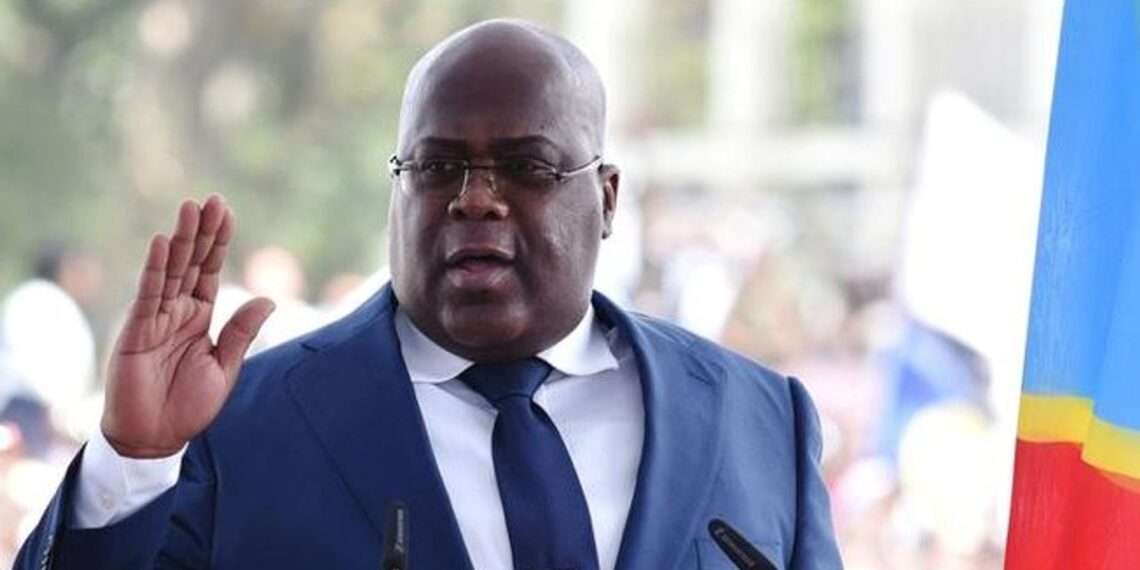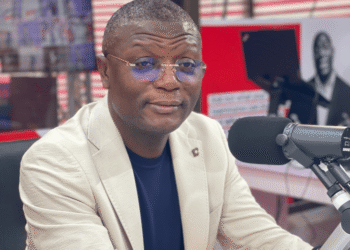Congo’s President Felix Tshisekedi has announced plans to establish a national commission next year tasked with drafting a new constitution. This move has raised concerns among opposition leaders, who fear it may open the door to extending presidential term limits.
Tshisekedi has faced ongoing questions about his legitimacy, stemming from disputes over the 2018 election results. His administration has struggled to address the escalating armed conflict in eastern Congo, which has fueled discontent among citizens.
During a recent visit to Kisangani, the capital of Tshopo Province in northeastern Congo, Tshisekedi declared, “Our constitution is not good.” He attributed the current constitution’s flaws to its origins, saying, “It was drafted abroad and by foreigners.”
The existing constitution was ratified by a popular referendum in 2006, marking the sixth constitution since Congo gained independence from Belgium in 1960. It emerged as a result of the 2003 peace agreement brokered in South Africa, which aimed to end years of civil war and pave the way for a government of national unity.
In recent months, Tshisekedi has intensified his criticism of the constitution, dismissing it as “outdated.” Among his chief grievances are the delays in government formation following elections and the contentious power dynamics between provincial governors and assemblies. He pointed to these issues as proof that Congo needs a new framework.
However, he was careful to stress that any decision on presidential term limits would be left to the people rather than decided by him unilaterally.
Opposition Calls Out Presidential Overreach
This announcement has drawn swift opposition. The Together for the Republic Party, one of Congo’s major opposition groups, condemned Tshisekedi’s proposal, calling his statements misleading.
Hervé Diakiese, the party’s spokesperson, disputed the president’s claim about the constitution’s foreign roots. “It is false to claim that a constitution voted on in a referendum by the Congolese, after debate in the transitional parliament, is a constitution written by foreigners,” Diakiese posted on social platform X. He further accused the government of proposing “false solutions to real problems.”

Fred Bauma, a prominent human rights activist and leader of The Struggle for Change, a social justice organization, also spoke out against the president’s intentions.
Bauma argued that Tshisekedi, who took an oath to “observe and defend the constitution” at his inauguration, was now positioning himself as one of its chief critics. “Today he poses as the first detractor of the constitution, and this after having violated it several times,” Bauma wrote on X.
According to constitutional experts, Tshisekedi does have the legal authority to initiate changes to the constitution, but any amendments would require either the approval of 60% of the parliament or a referendum in which more than 50% of the electorate supports the change.
Nevertheless, opposition leaders and civil rights groups remain wary, suspecting that the proposed changes could potentially set a precedent for power extension.
Tshisekedi has not yet disclosed how the members of the national commission will be selected or offered specific details on its mandate. This omission has further fueled concerns about transparency and the administration’s motives.
As such, with the central African country facing significant political and security challenges, Tshisekedi’s constitutional proposal has sparked a heated debate about governance and the future of democracy in Congo.
While he frames the need for change as part of a broader effort to address issues of political inefficiency, opposition leaders argue that the proposed reforms could jeopardize democratic principles by concentrating power in the presidency.
READ ALSO: Ayra Starr Discusses Her Dating Standards



















